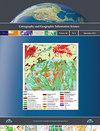基于主动学习的道路网络分段匹配迭代框架
IF 2.4
3区 地球科学
Q1 GEOGRAPHY
Cartography and Geographic Information Science
Pub Date : 2023-04-11
DOI:10.1080/15230406.2023.2190935
引用次数: 0
摘要
检测圆弧间关系的道路网络匹配是道路数据更新的关键前提。多源多尺度路网数据日益复杂,对现有方法的准确性和效率提出了挑战。本文主要研究基于交互的概率松弛方法。在多车道等复杂的道路网络中,采用完全自动匹配算法很难获得满意的结果。我们试图通过将优化匹配模型与人工交互相结合来提高匹配精度。该方法利用主动学习模块从概率松弛的初步匹配中构建未标记样本库,然后通过查询函数选择不确定性最高的弧。然后将选定的道路移交给人类,以确定其在另一道路网络中的弧对弧关系。最后,根据用户的反馈信息自动调整匹配参数,实现模型的动态优化。我们的交互方法是有效的,因为它只需要指定几个弧到弧的映射,其他映射可以自动修改。我们的实验结果表明,主动学习可以显著提高标准概率松弛算法在道路网络匹配中的性能。本文章由计算机程序翻译,如有差异,请以英文原文为准。
An iterative framework with active learning to match segments in road networks
ABSTRACT Road network matching that detects arc-to-arc relations is a crucial prerequisite for the update of road data. The increasing complexity of multi-source and multi-scale road network data challenges the existing methods on accuracy and efficiency. This paper focuses on the interactive-based probabilistic relaxation approach. It is difficult to obtain satisfactory results by using completely automatic matching algorithm in some complicated road networks such as multi-lane carriageways. We try to improve the matching accuracy by combining optimization matching model with manual interaction. The method uses the module of active learning to construct unlabeled sample pool from preliminary matching of probabilistic relaxation, and then selects the arcs with the highest uncertainty by query function. The selected road is then handed over to humans to determine its arc-to-arc relations in the other road network. Finally, the matching parameters are automatically adjusted according to the user’s feedback information, so as to realize the dynamic optimization of the model. Our interaction method is efficient as it only needs to specify few arc-to-arc mappings and others can be amended automatically. Our experimental results reveal that active learning can substantially improve the performance of standard probabilistic relaxation algorithms in road network matching.
求助全文
通过发布文献求助,成功后即可免费获取论文全文。
去求助
来源期刊
CiteScore
5.20
自引率
20.00%
发文量
23
期刊介绍:
Cartography and Geographic Information Science (CaGIS) is the official publication of the Cartography and Geographic Information Society (CaGIS), a member organization of the American Congress on Surveying and Mapping (ACSM). The Cartography and Geographic Information Society supports research, education, and practices that improve the understanding, creation, analysis, and use of maps and geographic information. The society serves as a forum for the exchange of original concepts, techniques, approaches, and experiences by those who design, implement, and use geospatial technologies through the publication of authoritative articles and international papers.

 求助内容:
求助内容: 应助结果提醒方式:
应助结果提醒方式:


